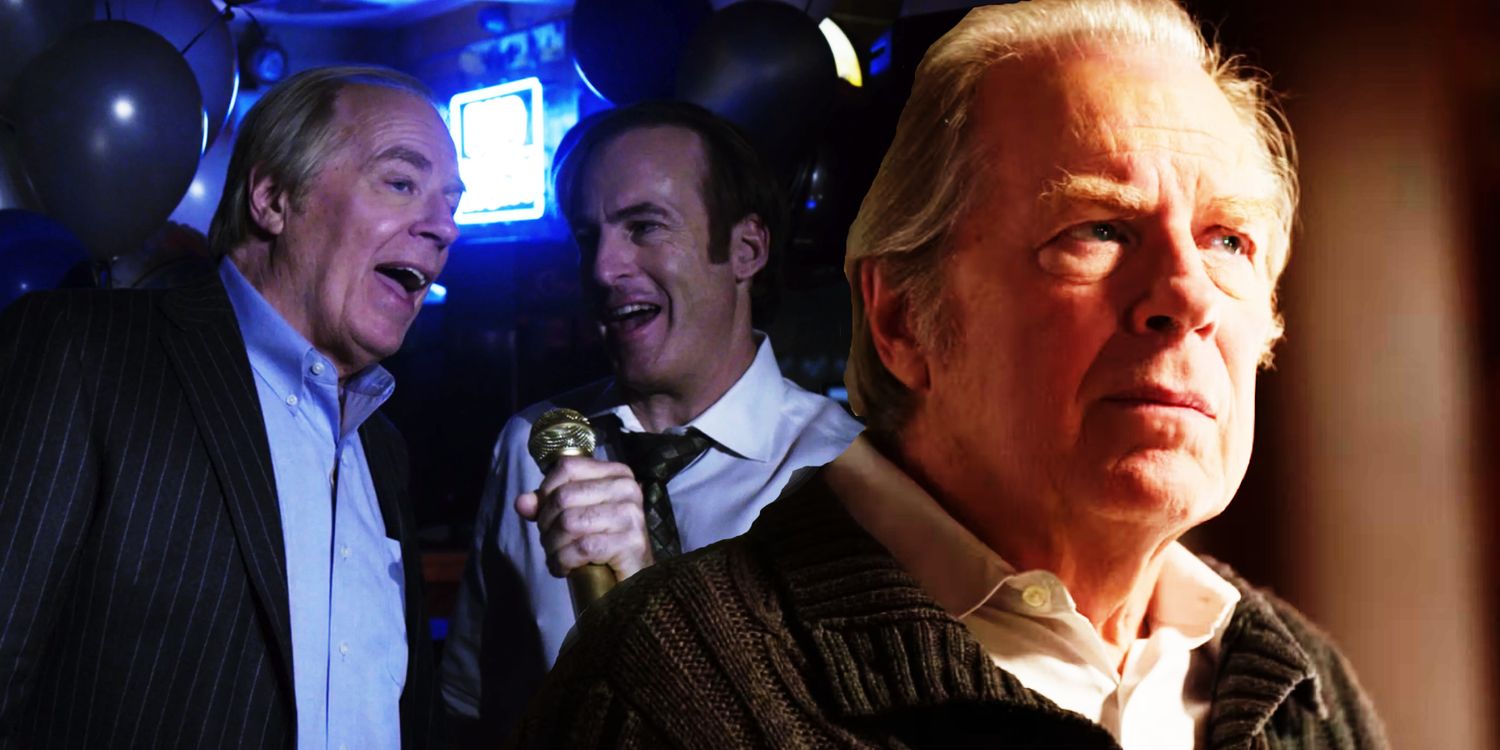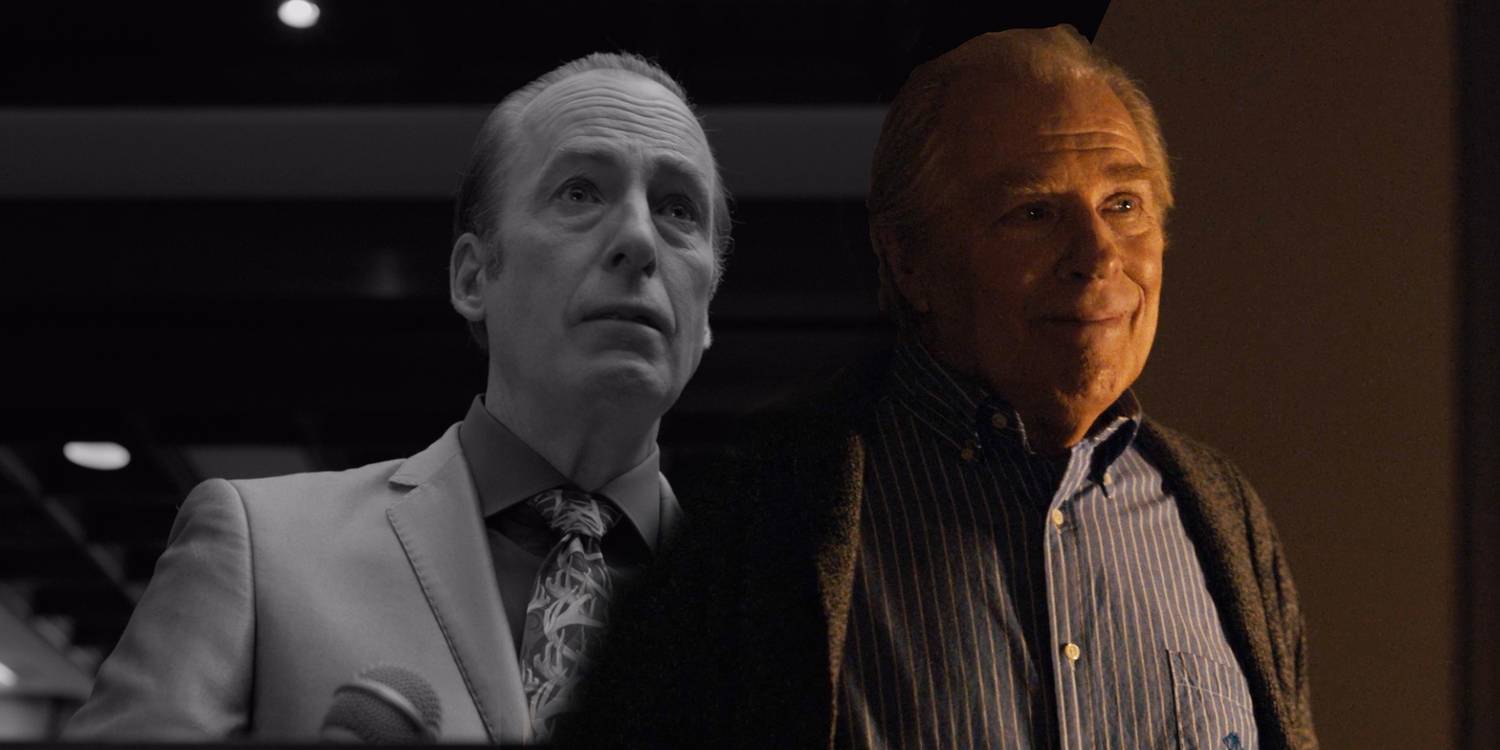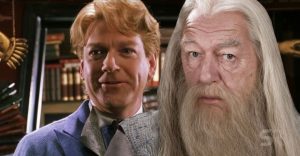Better Call Saul’s Original Chuck Plan Would’ve Really Hurt The Show

Vince Gilligan has revealed the original plans for Chuck McGill (Michael McKean) in Better Call Saul, which would have changed the show for the worst. The relationship between Jimmy McGill (Bob Odenkirk) and his brother Chuck was the defining relationship of the Breaking Bad spinoff. As the series went on, Chuck was arguably a more destructive antagonist for Jimmy than the likes of Lalo Salamanca (Tony Dalton) or Gustavo Fring (Giancarlo Esposito). It was Chuck’s disapproval, and lack of belief in his brother that enabled the aspects of Jimmy’s character that would ultimately mutate into his Saul Goodman persona.
However, Vince Gilligan has stated that this wasn’t the writer’s original intention for Chuck and Jimmy’s relationship. Originally, the villain was Howard, rather than Chuck, with the senior McGill brother serving more as a counsel for Jimmy in his legal battles. Gilligan likens the original vision for Chuck McGill as a Mycroft Holmes-style character, superior in intelligence, with similar emotional baggage, but much more supportive than the Chuck audiences eventually got. There’s an inkling of this in the first few episodes of Better Call Saul, but ultimately the team decided it would be more dramatically interesting to make Howard Hamlin (Patrick Fabian) more vulnerable than he appears behind the tanned skin, sharp suits, and blonde hair. It was the right move and improved Jimmy’s character arc, and Better Call Saul overall.
The two most important relationships in Better Call Saul were between Jimmy and Chuck, and Jimmy and Kim. Chuck never believed that Jimmy was worthy of the McGill name, or of a career as a lawyer, despite how hard his brother worked for it. To Chuck, Jimmy would always be the low-level conman, more interested in financial gain than doing the right thing. At one point Chuck tells Kim that his brother has a good heart, but can’t help himself from falling into bad habits. Chuck’s analysis of Jimmy colors Kim’s relationship with him, right up until she ends it after Howard dies. Their break up is an important moment that completes Jimmy’s transition into Saul Goodman, but this transition began when Chuck ended his life in season 3. All in all, Chuck’s central and personal status in Better Call Saul makes his antagonism even more affecting than it would have been had the character been more remote, proving that the narrative decision was correct.
Why Chuck Was Key To Jimmy’s Story (Even After His Death)
When Chuck dies, Jimmy doesn’t atone by becoming a better lawyer, he responds by becoming Saul Goodman. At first, it seems like he’s free from his brother’s disapproval to embrace his true self, but it becomes clear that it’s Jimmy’s guilt over Chuck’s death, and his role in it, that convinces Jimmy that his brother was always right about him. In his gut-wrenching testimony about the crimes committed by Saul Goodman, Jimmy finally holds his hands up and takes responsibility – something that Chuck never believed that Jimmy was capable of doing. It’s a moving moment that earns him the right to the McGill name and prove himself to the brother he lost.
If Chuck and Howard had swapped places, this profound and emotional finale would not have had the same impact. If Howard had been the villain, the emotional arc of Jimmy’s transformation into Saul Goodman would never have worked. Flashy Howard Hamlin barring low-level public defender Jimmy McGill from joining his prestigious law firm just wouldn’t have the same impact. While it’s easy to see how Jimmy would have petulantly followed a similar trajectory to becoming Saul Goodman, it would have been harder to keep the audience on his side. Knowing that it’s Chuck, rather than Howard, who didn’t want Jimmy at HHM humanizes him and adds a much deeper layer to how he responds to this rejection across Better Call Saul‘s six seasons.


















